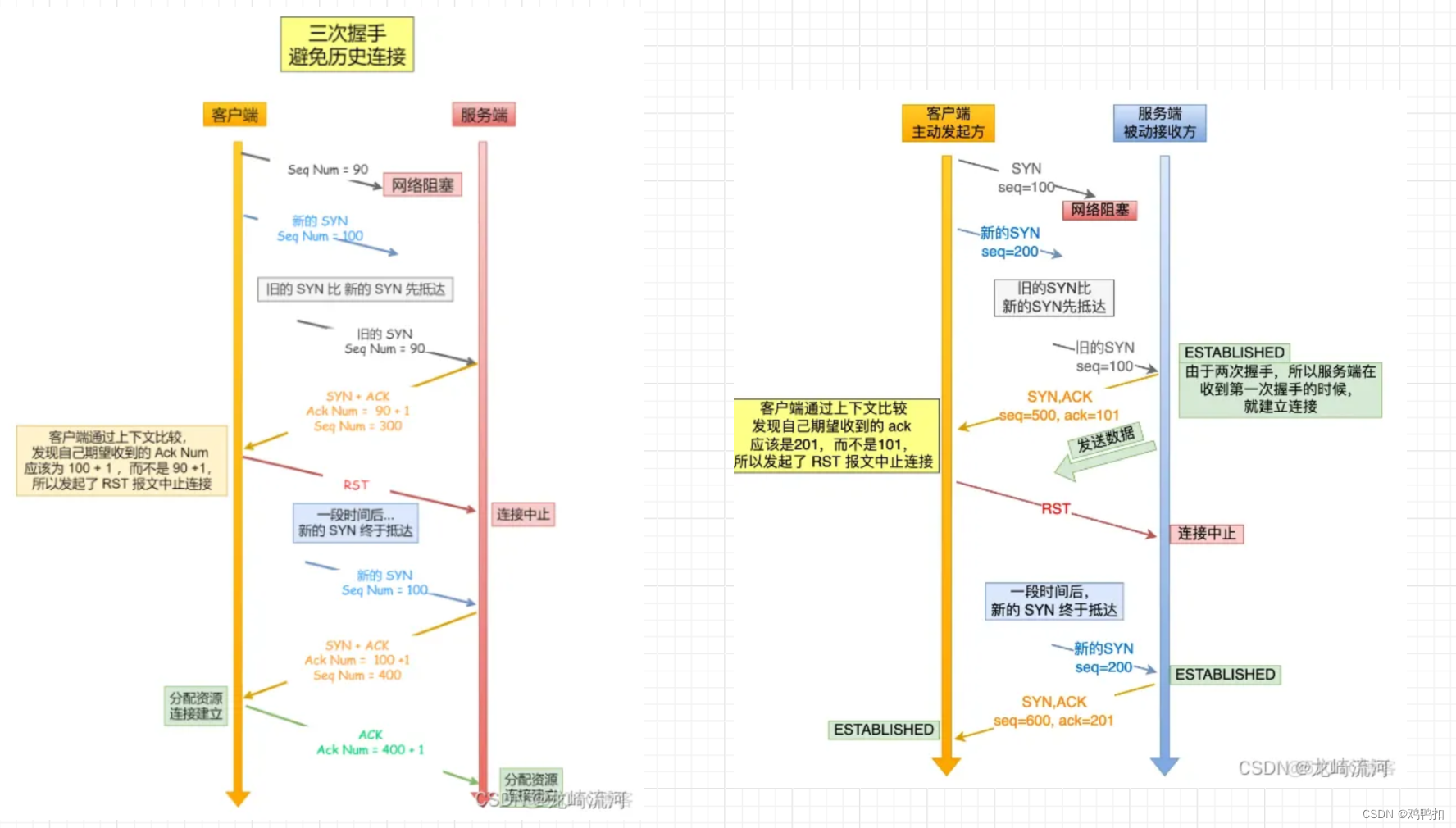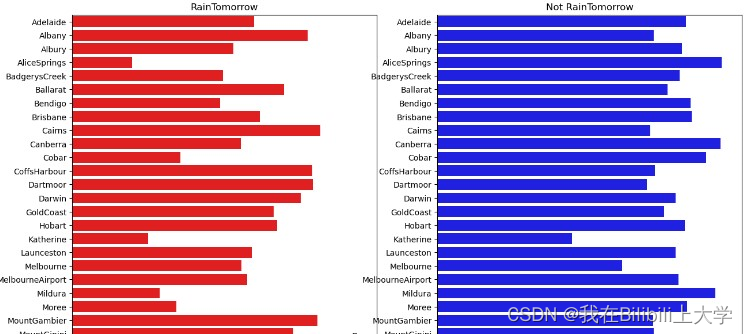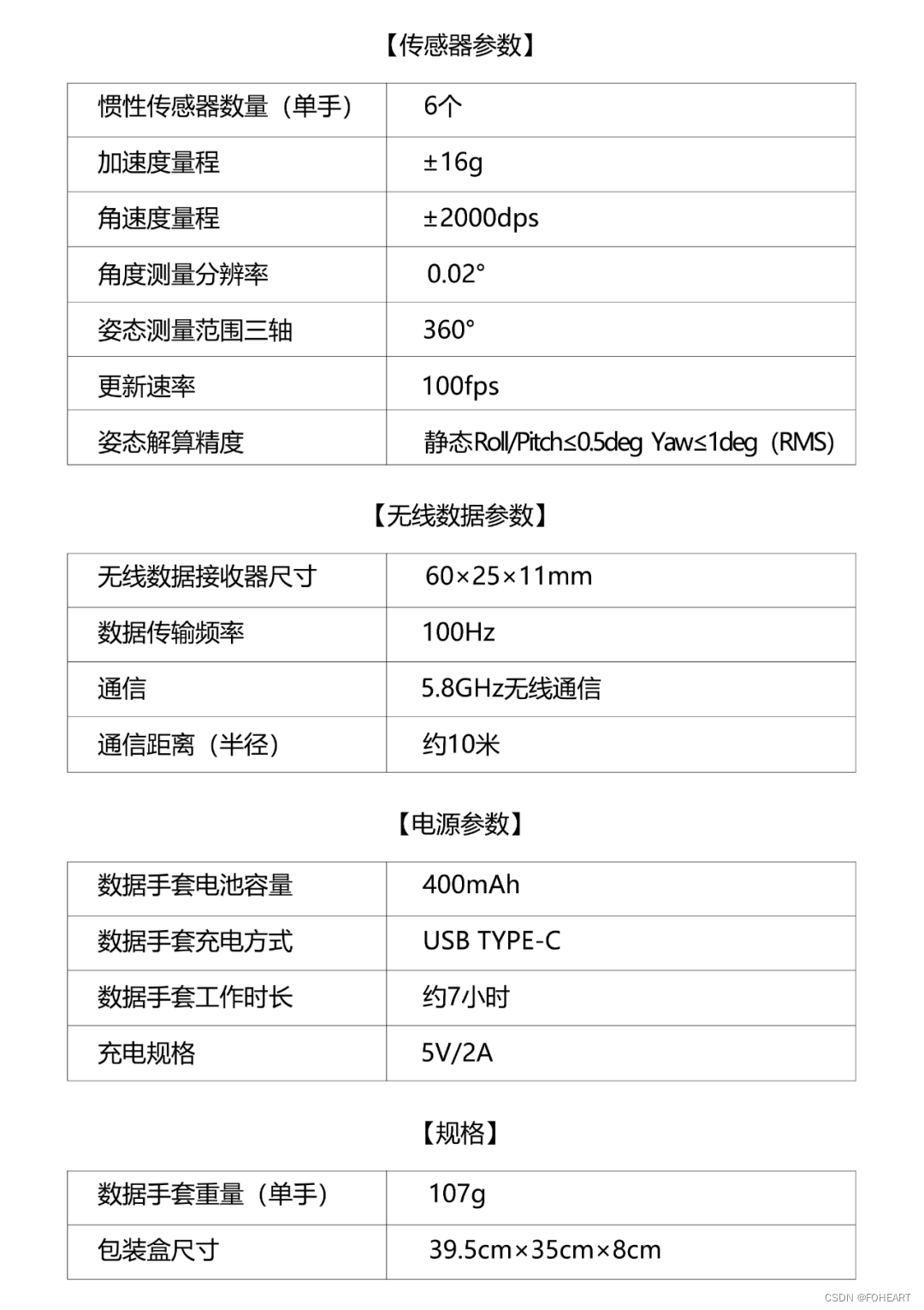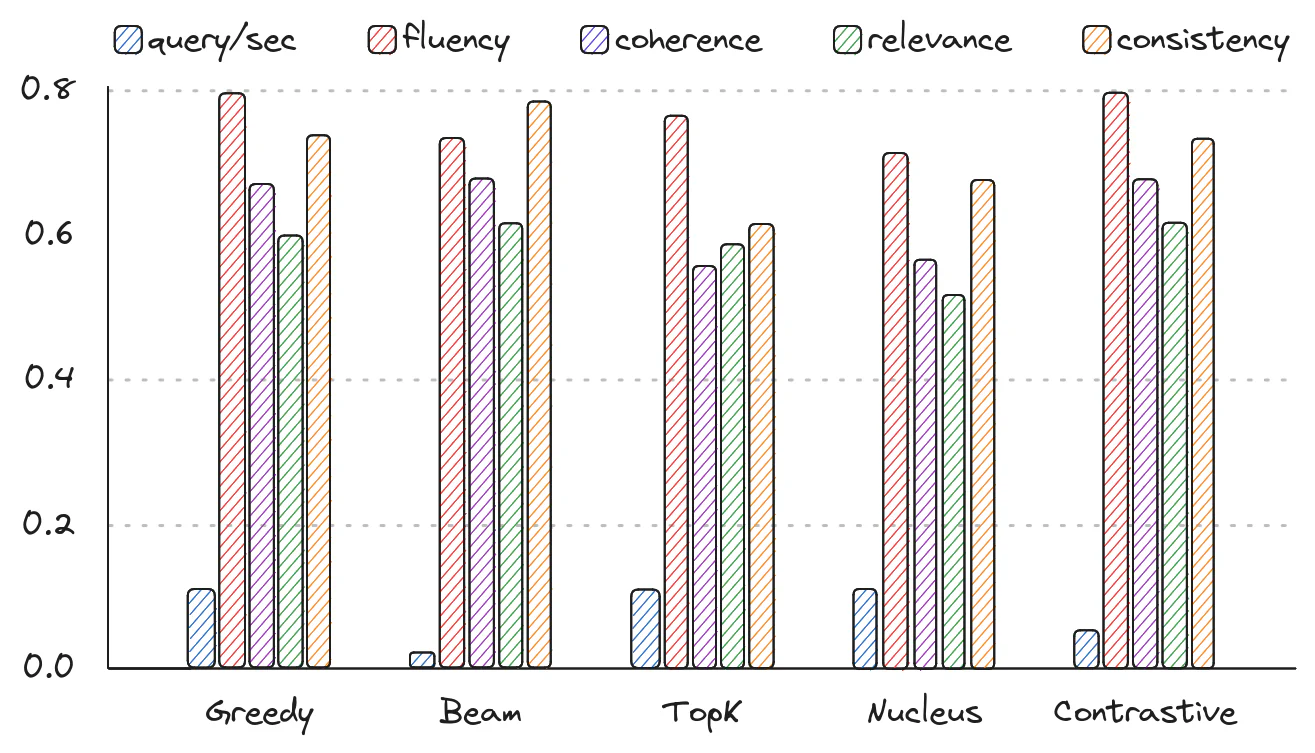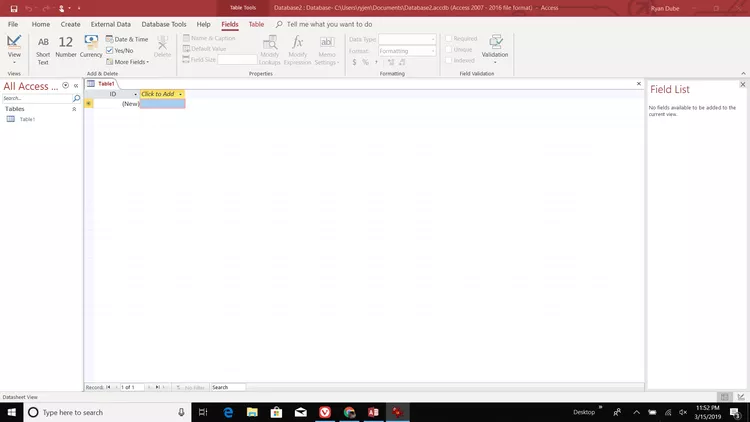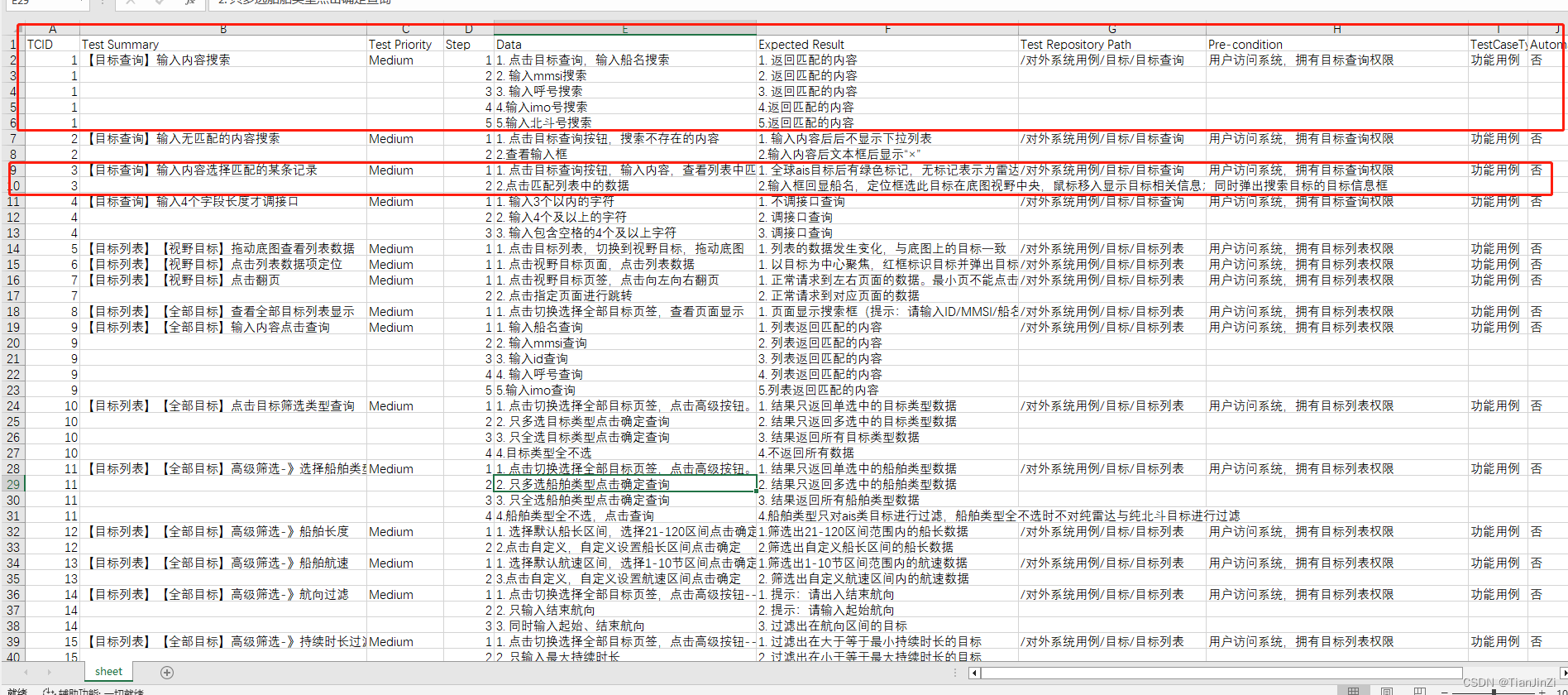计算日期到天数转换
- 阅读题目
- 解题方案 及 解题思路
- 方法一 . 手撕日期类
- 方法二 . 分别直接算出平年和闰年每个月的时间 并对应下标存入数组中,判断该年份为平年还是闰年,再 for循环依次求和
- 优化:也不用分别算出平年和闰年的每个月的时间,闰年就比平年多一天,所以直接算出平年各月的天数,判断是否为闰年,是就在原基础上天数再 +1 就行。
- 方法三 . 直接按平年,算好每个月份已累积到的天数(累积到的都是前面的月份完整天数的总和),再加上该月已过的天数,就是这一年中的第几天了
阅读题目
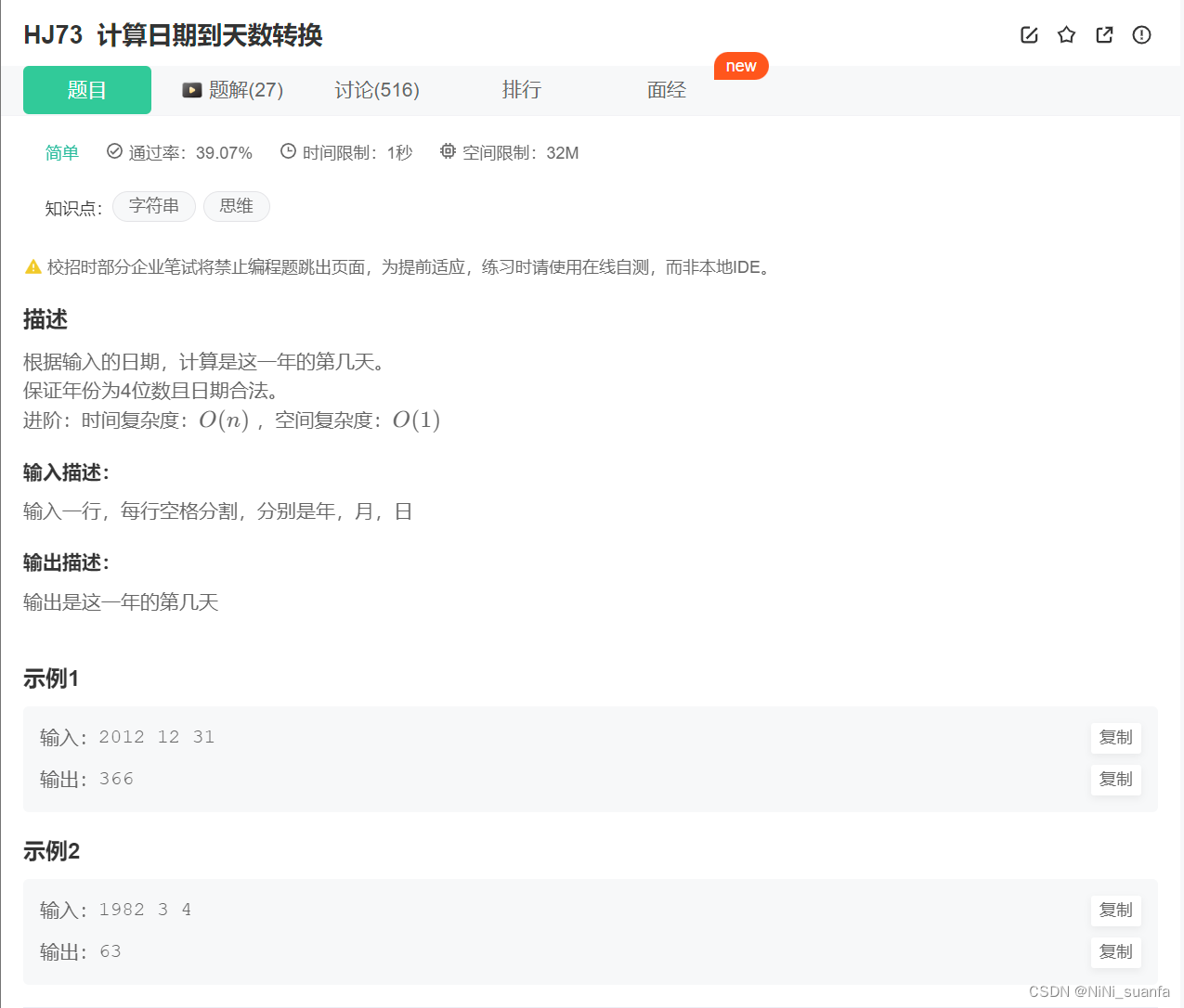
解题方案 及 解题思路
方法一 . 手撕日期类
我只把日期类中真正派上用场的成员函数写出来
思路从 int TheDayOfYear() 开始看起,顺着 //注释 思路看
//方案一 手撕一个日期类出来
#include <iostream>
using namespace std;
class Date {
public:
Date(int year = 0, int month = 0, int day = 0) {
_year = year;
_month = month;
_day = day;
}
bool operator>(const Date& d) const {
if (this->_year > d._year)
return true;
else if (this->_year == d._year && this->_month > d._month)
return true;
else if (this->_year == d._year && this->_month == d._month &&
this->_day > d._day)
return true;
else
return false;
}
bool operator==(const Date& d) const {
if (this->_year == d._year
&& this->_month == d._month
&& this->_day == d._day)
return true;
else
return false;
}
bool operator!=(const Date& d) const {
return !(*this == d);
}
bool operator<(const Date& d) const {
return !(*this > d || *this == d);
}
Date& operator-=(int day) {
if (day < 0) {
*this += -day;
return *this;
}
_day -= day;
while (_day <= 0) {
_month--;
if (_month == 0) {
_month = 12;
_year--;
}
_day += GetMonthDays(_year, _month);
}
return *this;
}
Date& operator+=(int day) {
if (day < 0) {
*this -= -day;
return *this;
}
// 对日期进行+=,直到++min到与max时间相同时,则结束
_day += day;
while (_day > GetMonthDays(_year, _month)) {
_day -= GetMonthDays(_year, _month);
_month++;
if (_month == 13) {
_month = 1;
_year++;
}
}
return *this;
}
int GetMonthDays(int year, int month) {
static int monthDays[13] {0, 31, 28, 31, 30, 31, 30, 31, 31, 30, 31, 30, 31};
if (month == 2 && ((year % 4 == 0 && year % 100 != 0) || year % 400 == 0))
return 29;
else
return monthDays[month];
}
Date& operator++() {
*this += 1; //再调用 `+=`自定义类型 重载运算符
return *this;
}
int operator-(const Date& d) const {
Date max = *this;
Date min = d;
int flag = 1;
int cnt = 0;
if (*this < d) { //调用 bool`<` 自定义类型 重载判断运算符
max = d;
min = *this;
flag = -1;
}
// 直到加到日期重合为止
while (min != max) { //调用 bool`!=`自定义类型 重载判断运算符
++cnt; //内置类型的 ++
++min; //调用 `++`自定义类型 重载运算符
}
return cnt * flag;
}
int TheDayOfYear() {
return (*this - Date(_year, 1, 1)) + 1; //调用 `-`重载运算符
}
private:
int _year;
int _month;
int _day;
};
int main() {
int year,month,day;
while(cin>>year>>month>>day)
{
Date d(year,month,day);
cout<<d.TheDayOfYear()<<endl;
}
}
方法二 . 分别直接算出平年和闰年每个月的时间 并对应下标存入数组中,判断该年份为平年还是闰年,再 for循环依次求和
优化:也不用分别算出平年和闰年的每个月的时间,闰年就比平年多一天,所以直接算出平年各月的天数,判断是否为闰年,是就在原基础上天数再 +1 就行。
#include <iostream>
using namespace std;
int main() {
//平年
int ar[13] = {0, 31, 28, 31, 30, 31, 30, 31, 31, 30, 31, 30, 31};
int year, month, day;
int cnt = 0;
while (cin >> year >> month >> day) {
for (int i = 1; i < month; i++) {
cnt += ar[i];
}
}
//并不是所有二月都要+1的,要判断是否经过 二月的最后一天
if (month > 2 && ((year % 4 == 0) && (year % 100 != 0) || (year % 400 == 0))) {
cnt++;
}
cout << cnt + day << endl;
}
方法三 . 直接按平年,算好每个月份已累积到的天数(累积到的都是前面的月份完整天数的总和),再加上该月已过的天数,就是这一年中的第几天了
#include <iostream>
using namespace std;
int main() {
//平年每月
//int ar[13] = {0, 31, 28, 31, 30, 31, 30, 31, 31, 30, 31, 30, 31};
//平年每个月的累积
int ar[13] = {0,31,59,90,120,151,181,212,243,273,304,334};
int year, month, day;
cin>>year>>month>>day;
//并不是所有二月都要+1的,要判断是否经过 二月的最后一天
if (month > 2 && ((year % 4 == 0) && (year % 100 != 0) || (year % 400 == 0))) {
cout << ar[month-1]+day+1 << endl;
}
else {
cout << ar[month-1]+day << endl;
}
}







